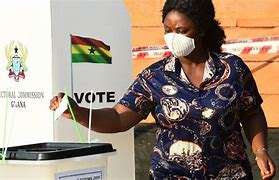Ghana, a beacon of democracy in West Africa, is once again at the crossroads of civic engagement as its citizen’s head to the polls to elect assembly members and unit committee members. The democratic process is the cornerstone of a thriving society, and ensuring free and fair elections is not only a right but a responsibility.
Transparency in the electoral process is fundamental to fostering public trust and confidence. To achieve this, the electoral commission in particular must operate openly and efficiently. The entire electoral process, from voter registration to the announcement of results, should be conducted in a transparent manner. This includes providing accessible information about the electoral rules, procedures, and candidates to the public. Transparent ballot counting and results reporting are vital elements in dispelling doubts and upholding the integrity of the electoral system.
A cornerstone of free and fair elections is an informed electorate. Voter education plays a pivotal role in empowering citizens to make informed choices. Efforts should be made to educate voters on the electoral process, their rights, and the responsibilities that come with casting a vote. Civic education programs, public service announcements, and grassroots campaigns can contribute significantly to raising awareness about the importance of each vote and the impact it has on shaping the nation’s future.
The EC has added its voice to the call for a free and fair election.

“Experience over the years shows that this election is not highly participated in and we would like to entreat all Ghanaians and assure them that the Electoral Commission has put in place all arrangements, all necessary arrangements and modalities have been put in place for a smooth incident-free election and we will like to entreat all Ghanaians to take their time to go to their polling stations to cast their votes.
“Let us make this election meaningful. We are all aware that developments start at the district level and therefore it is important that as citizens we have a say and a stake in who brings development to our various districts.”
Electoral Commission
In order for elections to be truly free and fair, it is imperative that all citizens have equal access to the electoral process. This involves addressing barriers that may hinder certain groups, such as minorities or marginalized communities, from participating fully. Steps should be taken to ensure that voting stations are easily accessible, that the electoral process accommodates individuals with disabilities, and that no discriminatory practices prevent any eligible citizen from exercising their right to vote.
The credibility of elections hinges on the impartiality and independence of electoral bodies. These bodies must operate without bias, undue influence, or external interference. Appointments to these bodies should be made based on merit, and their members should act in the interest of the public rather than any political entity. Regular audits and reviews of electoral processes can further enhance the perception and reality of impartiality.
Ensuring a secure environment during elections is paramount. Adequate security measures should be in place to safeguard voters, election officials, and candidates. Efforts must be made to prevent electoral violence, intimidation, and any form of coercion. The presence of law enforcement should be reassuring rather than intimidating, promoting an atmosphere conducive to free expression and the peaceful exercise of democratic rights.
The media plays a crucial role in shaping public opinion and disseminating information during elections. It is essential that media outlets operate independently, providing fair and unbiased coverage of all candidates and parties. Responsible journalism can contribute to informed decision-making by the electorate, fostering an environment where citizens are empowered to make choices based on facts rather than misinformation.
Ghanaians participate in the democratic process by electing their assembly members and unit committee members, the nation stands at a critical juncture. Safeguarding free and fair elections is not just a goal; it is a collective responsibility. By upholding transparent processes, promoting voter education, ensuring equal access, maintaining the impartiality of electoral bodies, securing the electoral environment, and fostering media freedom, Ghana can continue to strengthen its democratic foundations.
The true success of these elections will not only be measured by the outcome but by the adherence to principles that uphold the sanctity of the democratic process.
READ ALSO: NDC-NPP “X-Contest” Over Deteriorated Cocoa Roads




















